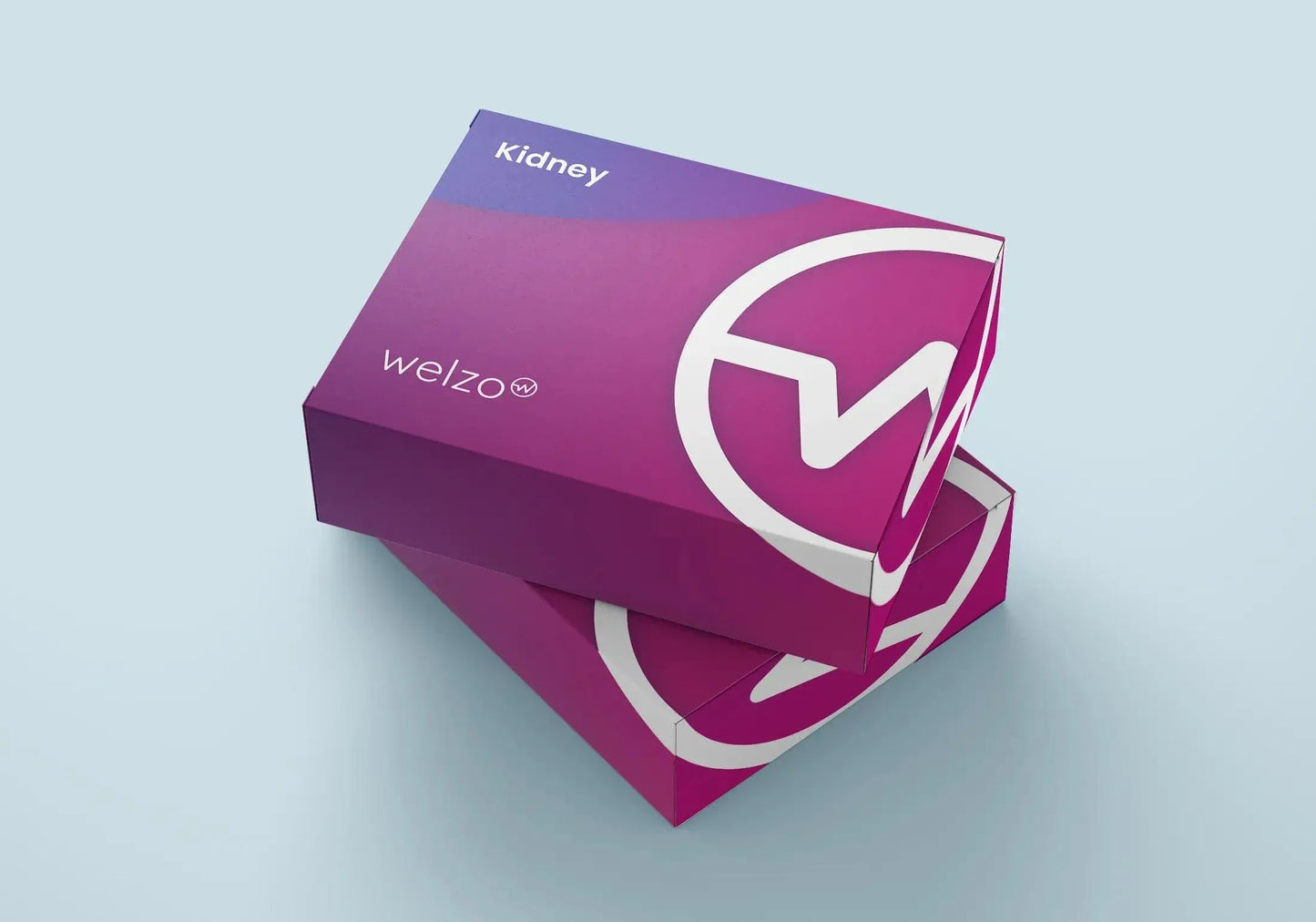Kidney Health Home Blood Test
The Kidney Blood Test is a diagnostic procedure that can help your doctor determine your kidney functioning or the cause of your kidney problems.
- Urea
- Estimated Glomerular Filtration Rate (eGFR)
- Creatinine
- Sodium
The UK's Highest Rated Home Testing Provider
- Biomarkers
- Information
Urea
Estimated Glomerular Filtration Rate (eGFR)
Creatinine
Sodium
Have you been feeling any of these symptoms lately?
Additional Information
It is wiser to protect your kidneys before it is too late
Taking care of the kidneys goes a long way in ensuring multiple body systems function properly. So getting a kidney blood test is always beneficial because it lets one know the current condition of their kidneys and what to change in their daily life to benefit their renal health, thereby preventing chronic kidney disease in the long run.







How to take your Welzo Test
You're one step closer to discovering a healthier you! Taking your Welzo test from the comfort of home is simple and straightforward. Click the link below to learn more about how it works.





















 Rated Excellent by 26,523+ Reviews
Rated Excellent by 26,523+ Reviews